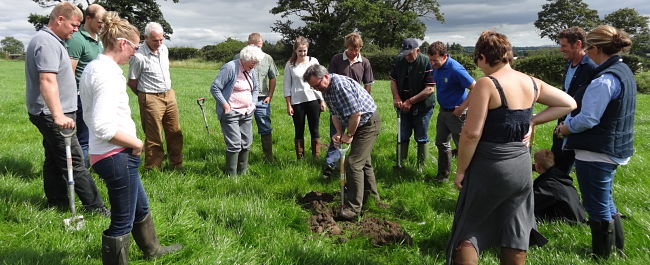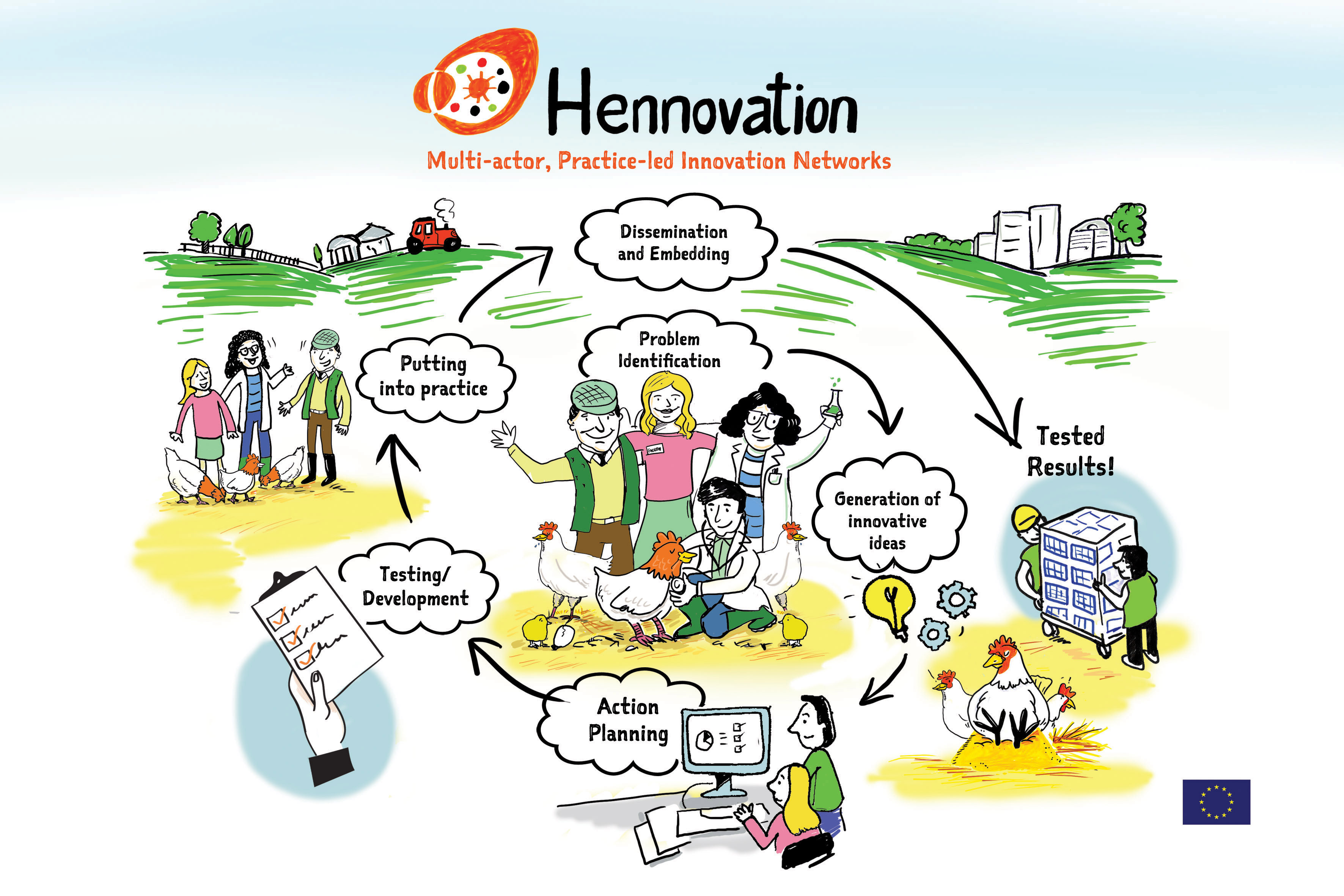The future of farming policy in the UK: giving farmers a voice in development and delivery

In a range of UK and international projects, the University of Bristol has been exploring how facilitated farmer-led approaches can tackle societal challenges, husbandry issues and market opportunities.
About the research
In the UK, spreading best practice and encouraging farmers to respond to agriculture policy challenges has often depended upon education and other top-down knowledge transfer approaches.
However, UK farming is becoming more complex with significant diversity in production systems and marketing strategies.
Access to information is easier but also possibly more confusing due to conflicting sources. There is an increasing aversion to accepting expert or best practice advice automatically. Traditional top-down knowledge transfer approaches are becoming less effective.
In other contexts, involving farmers from the outset through practice-led participatory approaches has been shown to be effective.
Since the 1980s, a participatory farmer-first philosophy has been widely adopted in resource-poor agriculture in developing countries.
This approach has proven more suitable for complex and diverse farming systems than solutions developed for standardised high-input high-output agriculture systems.
Policy Report 23: Jan 2018
The future of farming policy in the UK: giving farmers a voice (PDF, 274kB)
Contact the researchers
Professor David Main, Professor of Animal Welfare
Dr Kristen Reyher, Senior Lecturer in Farm Animal Science
Policy recommendations
Facilitated farmer-led initiatives are an important tool and should be part of UK agriculture policy.
Evidenced benefits include:
• Decreased antimicrobial use on farms
• Improved farm animal welfare
• Better/more environmental stewardship
• Increased consumer trust in the UK food chain
Unleashing this opportunity requires the following key steps:
• Working in partnership, government and industry
policymakers should trial the use of facilitated initiatives to address societal challenges.
• Easy-to-access funding mechanisms to cover facilitator time and support should be included within future UK agriculture policy.
• An agricultural facilitator training and certification programme should be established by relevant academic institution(s) to maximise the effectiveness of facilitated initiatives.
• Organisations, such as AHDB, SAC Consulting, ADAS and veterinary practices should provide facilitation services to the farming industry.
Further research into the cost-effectiveness of facilitated farmer-led initiatives to deal with specific policy challenges, such as improved animal welfare, should be undertaken.
Research summaries
Working with laying hen, dairy and sheep farmers across the UK and other European countries, the University of Bristol has been exploring the potential of facilitated farmer-led approaches.
Examples of other practice-led initiatives to solve complex problems
Countryside Stewardship Facilitation Fund: A facilitator is funded to work with farmers and land managers to improve the local environment and flood defences. bit.ly/2nIf6iV
The Game and Wildlife Conservation Trust: As part of England’s Rural Development Programme, a facilitator is funded to support the ‘Farmer Cluster’ initiative which helps farmers/land managers to improve local habitats. bit.ly/2nJge5K
Healthy Feet programme: An AHDB Dairy-managed programme to reduce lameness in UK dairy cattle includes a list of approved “mentors” that have been trained in relevant technical and communication skills. bit.ly/2iHoYE2
Innovative Farmers: As part of the Duchy Future Farming programme, the network brings together groups of farmers with researchers in practical “field labs”. bit.ly/2kayD6o
Stable Schools in Denmark: Before administering certain medicines, organic dairy farmers are required by law to have either sought direct advice from a veterinarian or participated in the peer learning groups that have been shown to reduce antimicrobial use. bit.ly/2kD33lG
Key findings
• Facilitated farmer-led initiatives can be a major stimulus for promoting innovation and spreading best practice between farms, especially when linked to retailer priorities.
• Farmer groups are a valuable space for innovation, on-farm trials, discussions and taking action on difficult and complex farm challenges.
• In all the projects, skilled facilitators were heavily involved in both practical and technical activities, such as meeting logistics or bridging the gap between science and practice.
• Farmers involved in the projects valued highly the participatory nature of the work as it recognised their expertise and ability to solve complex problems, providing a holistic, systems-based approach.
Related briefings
As the UK moves towards leaving the EU there is an unique opportunity to look at how agriculture policy is developed and translated more effectively into action on the farm.
No one knows the practical farm-level challenges better than farmers.
Benefits of participatory policy discussions:
“made me think about
antibiotic use more”
“knowing the opinions of my
fellow producers”
“helped develop policies to
advantage all parties”
“helped make policy that
works for the farmer”
Further Information
1 van Dijk, L., Hayton, A., Main, D.C.J., Booth, A., King, A., Barrett, D.C., Buller, H. J. & Reyher, K.K. (2017), Participatory Policy Making by Dairy Producers to Reduce Anti-Microbial use on Farms. Zoonoses Public Health, 64: 476–484.doi.org/10.1111/zph.12329
2 Can dairy farmers lead the way in the UK for antibiotic reduction? Why of course, it is already happening!
Lisa Morgans, Farm Antibiotics, June 2017 http://www.farmantibiotics.org/news-updates/blogspot/
3 Practice-led innovation supported by science and market-driven actors in the laying hen and other livestock sectors
www.hennovation.eu
4 Stokes, J.E., Main, D.C.J., Mullan, S., Haskell, M.J., Wemelsfelder, F. & Dwyer C.M. (2017) Collaborative Development of
Positive Welfare Indicators With Dairy Cattle And Sheep Farmers, Proceeding of UFAW International Symposium 27th-
29th June 2017 Royal Holloway, University of London, Surrey, UK. Page 133 http://bit.ly/2t1QdgQ

Authors
Lisa Morgans, Dr Kristen Reyher, Lisa van Dijk, Professor David Main, University of Bristol